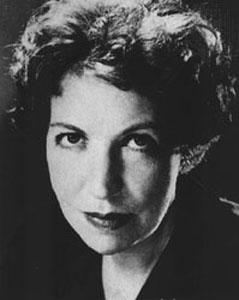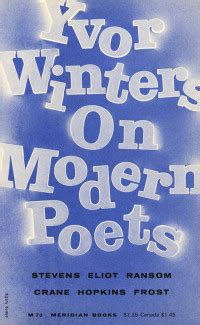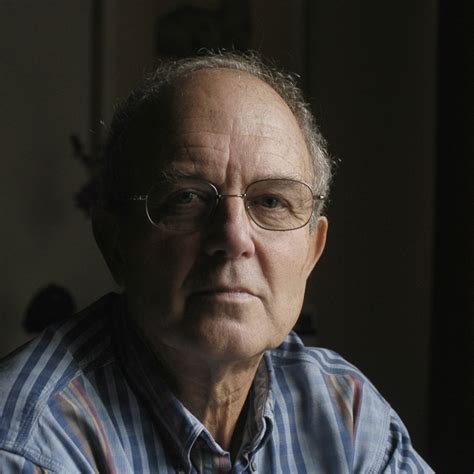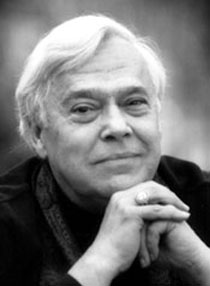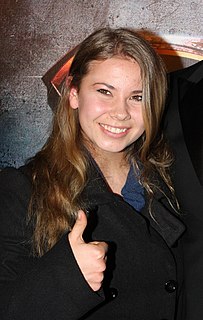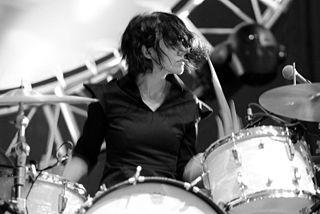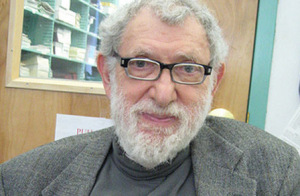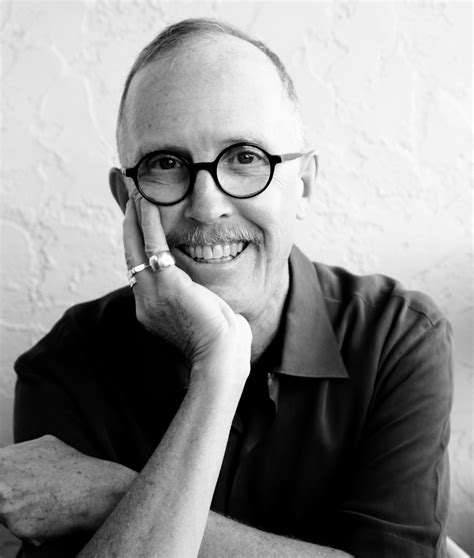Top 1200 Poetry Reading Quotes & Sayings
Explore popular Poetry Reading quotes.
Last updated on November 14, 2024.
I do believe that one's writing life needs to be kept separate from Po-Biz. Personally, I deal with this by not attending too many poetry readings, primarily reading dead poets or poems in translation, reading Poets & Writers only once for grant/contest information before I quickly dispose of it, and not reading Poetry Daily. Ever.
Poetry springs directly from our primal need and capacity for communication[Poetry] mobilizes such a concentration of devices, such an intensification of language via rhythm, syntax, image and metaphor. Reading it-the best of it-can create another, very different kind of perpetual present, an awareness that can be as ongoing in the soul as the stop-time of trauma.
Poetry is concerned with using with abusing, with losing
with wanting, with denying with avoiding with adoring
with replacing the noun. It is doing that always
doing that, doing that and doing nothing but that.
Poetry is doing nothing but using losing refusing and
pleasing and betraying and caressing nouns. That is
what poetry does, that is what poetry has to do no
matter what kind of poetry it is. And there are a
great many kinds of poetry.
Because most of the girls were still in mourning and all of them had lost their textbooks, even pencils and pens, Shaukat Ali began the first classes by reading to them from poetry and religious texts. "Reading, literature, and spirituality are good for the soul," he told them. "So we will start with these studies.
Among those today who believe that modern poetry must do without rhyme or metre, there is an assumption that the alternative to free verse is a crash course in villanelles, sestinas and other such fixed forms. But most... are rare in English poetry. Few poets have written a villanelle worth reading, or indeed regret not having done so.
I think New York is working its way into my poems. It takes a while for a place to filter its way onto the page, but I've been reading more and more American poetry and I certainly feel it as quite a freeing force. Coming from the formally ordered tradition of poetry in Ireland, I find the expansiveness of American literature freeing in some sense.
Poetry is difficult, I mean interesting poetry, not confessional babble or emotive propaganda. Reading a new poet is discovering an entire world, what Stevens called a 'mundo' and it takes a lot of time to orientate oneself in such a world. What we have to learn to do then, as teachers and militants of a poetic insurgency, is to encourage people to learn to love the difficulty of poetry. I simply do not understand much of the poetry that I love.
There's no difference between lyrics and poetry. Words are words. The only difference is the people who are in academic positions and call themselves poets and have an academic stance. They've got something to lose if they say it's all poetry; if there's not music to it, and you have to wear a certain kind of checkered shirt or something like that. It's all the same. Lyrics are lyrics, poetry is poetry, lyrics are poetry, and poetry is lyrics. They are interchangeable to me.
Poetry is the most informative of all of the arts because everything comes down to poetry. No matter what it is we are describing, ultimately we use either a metaphor; or we say "that's poetry in motion." You drink a glass of wine and say, "that's poetry in a bottle." Everything is poetry, so I think we come down to emotional information. And that's what poetry conveys.
The maiden Olympics had more to protest about than mere war, though. Central to its ethos was a rejection of two establishments the political one, certainly, but also that of the wider poetry world itself. It changed poetry for ever in the UK, ... It led to readings all over the country. You suddenly got more women reading and publishing poems, as well as gay guys and poets from all over the world. Until that time, published poetry had been very university-based white, male, middle-class. We were trying to break poetry out of its academic confines.
I just think that the world of workshops - I've written a poem that is a parody of workshop talk, I've written a poem that is a kind of parody of a garrulous poet at a poetry reading who spends an inordinate amount of time explaining the poem before reading it, I've written a number of satirical poems about other poets.
Ho Kyuns poetry is in the tradition of his master, the incomparable Tu Fu, while remaining fully his own. Writing nine centuries later, Hos poetry strikes many parallels--the experiences of war and exile and constant struggle-- and his voice is similarly humane. This is rich and enlightening reading.
I was deeply moved by Richard Blanco's reading of his inaugural poem-a timely and elegant tribute to the great diversity of American experience. And now comes this fine meditation on his experience of coming to poetry, of making the poem and the months surrounding its making-a testament to the strength and significance of poetry in American culture, something not always seen or easily measured. Today Is For All of Us, One Today is a necessary intervention into the ongoing conversation about the role of poetry in public life.
We do have to learn poetry at school. Poetry is interesting to me, particularly Chinese poetry. It's like an ancient form of song. There's five sentences, seven sentences - they're very different from English poetry. Chinese poetry is much more rigorous. You can only use this many words, and they will form some kind of rhythm so people can actually sing it. To me, poetry is quite abstract but also quite beautiful.
I believe it's impossible to write good poetry without reading. Reading poetry goes straight to my psyche and makes me want to write. I meet the muse in the poems of others and invite her to my poems. I see over and over again, in different ways, what is possible, how the perimeters of poetry are expanding and making way for new forms.
I didn't ever consider poetry the province exclusively of English and American literature and I discovered a great amount in reading Polish poetry and other Eastern European poetry and reading Russian poetry and reading Latin American and Spanish poetry and I've always found models in those other poetries of poets who could help me on my path.
As for the differences between audio and the printed page, the sonic aspects of poetry are important to me. I read my poems aloud to myself as I'm composing them. And I enjoy reading to an audience. I think people get tone more easily when they hear a writer read her work. Some people have told me they hear more humor in my poems at a live reading than when they see them on the page. I think that may be a matter of pacing. On the other hand, I've listened to a lot of poetry readings and I know how much you can miss. If you stop to really register one line, you miss the next three or so.
